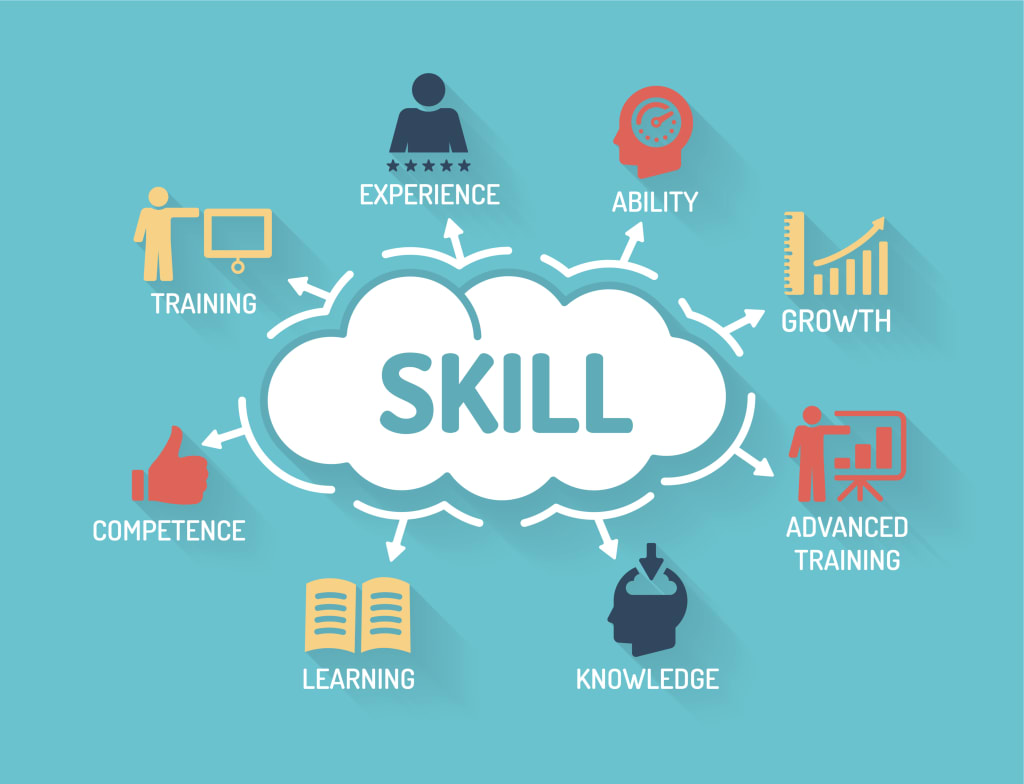Developing Essential Skills for Success
A Path to Personal and Professional Growth

In today's rapidly changing world, the ability to acquire and develop skills is crucial for personal and professional growth. Skills are the foundation upon which we build our careers, relationships, and overall well-being. Whether it is in the workplace or in our personal lives, having a diverse and adaptable skill set enables us to navigate challenges, seize opportunities, and thrive in an ever-evolving landscape. This article explores the importance of skills and provides insights into how individuals can cultivate a broad range of competencies to enhance their lives and achieve long-term success.
The Significance of Skills (200 words)
Skills are the tools that empower individuals to accomplish their goals and fulfill their potential. They serve as the building blocks for personal and professional development. Acquiring new skills expands our knowledge base, sharpens our problem-solving abilities, and fosters creativity. Moreover, skills contribute to self-confidence and resilience, enabling us to overcome obstacles and adapt to changing circumstances.
In the workplace, possessing a diverse set of skills is highly valued by employers. Companies seek individuals who can contribute effectively across different roles and functions. Skills such as communication, critical thinking, teamwork, leadership, and adaptability are increasingly in demand in today's competitive job market. Additionally, skills such as emotional intelligence, time management, and stress management are vital for maintaining work-life balance and overall well-being.
Cultivating Skills for Success (400 words)
1. Self-Assessment: Begin by identifying your strengths and weaknesses. Reflect on your experiences, interests, and aspirations to gain clarity on the skills you want to develop. Consider seeking feedback from mentors, colleagues, or friends who can provide valuable insights.
2. Goal Setting: Set specific and achievable goals for skill development. Break down larger goals into smaller, manageable tasks. Establish a timeline and track your progress along the way. Regularly revisit and revise your goals as you gain proficiency.
3. Continuous Learning: Embrace a growth mindset and commit to lifelong learning. Seek out opportunities to acquire new knowledge and skills through formal education, online courses, workshops, or seminars. Engage in reading books, listening to podcasts, or watching educational videos related to your areas of interest.
4. Practical Application: Apply the skills you learn in real-life situations. Seek out projects, internships, or volunteer opportunities that allow you to practice and refine your skills. Embrace challenges and view setbacks as opportunities for growth and learning.
5. Networking and Collaboration: Connect with individuals who possess skills complementary to yours. Networking not only expands your knowledge base but also opens doors to new opportunities. Collaborating with others on projects or initiatives allows you to learn from their expertise and develop teamwork skills.
6. Embracing Technology: In the digital age, technological skills are increasingly important. Stay updated with the latest advancements in technology relevant to your field. Develop proficiency in tools and software that can enhance your productivity and efficiency.
7. Adaptability and Resilience: Develop the ability to adapt to change and navigate uncertainty. Cultivate resilience by maintaining a positive mindset, seeking support when needed, and learning from failures and setbacks.
8. Effective Communication: Strong communication skills are fundamental in all aspects of life. Enhance your verbal and written communication skills, as well as active listening and empathy. Practice articulating your ideas clearly and concisely.
Conclusion (150 words)
Skills are the key to personal and professional growth, enabling individuals to navigate an increasingly complex and dynamic world. By proactively developing a diverse skill set, individuals can enhance their competitiveness in the job market, increase their effectiveness in various roles, and unlock new opportunities for advancement. The journey of skill development requires self-reflection, goal setting, continuous learning, practical application, networking, adaptability, and
effective communication. Embracing these principles empowers individuals to reach their full potential and become lifelong learners. In an era of rapid change and innovation, investing in skill development is not only a means to achieve success but also a pathway to personal fulfillment and a fulfilling life. So, let's embark on this transformative journey and embrace the power of skills to shape a brighter future.





Comments
There are no comments for this story
Be the first to respond and start the conversation.